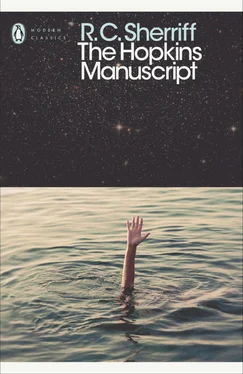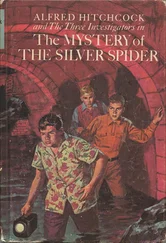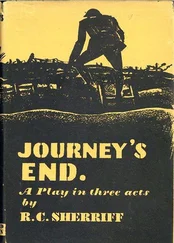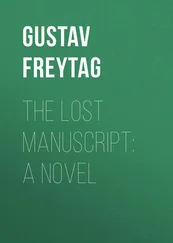Роберт Шеррифф - The Hopkins Manuscript
Здесь есть возможность читать онлайн «Роберт Шеррифф - The Hopkins Manuscript» весь текст электронной книги совершенно бесплатно (целиком полную версию без сокращений). В некоторых случаях можно слушать аудио, скачать через торрент в формате fb2 и присутствует краткое содержание. Год выпуска: 2018, ISBN: 2018, Издательство: Penguin Books, Жанр: sf_postapocalyptic, humor_satire, на английском языке. Описание произведения, (предисловие) а так же отзывы посетителей доступны на портале библиотеки ЛибКат.
- Название:The Hopkins Manuscript
- Автор:
- Издательство:Penguin Books
- Жанр:
- Год:2018
- ISBN:978-0-241-34908-3
- Рейтинг книги:4 / 5. Голосов: 1
-
Избранное:Добавить в избранное
- Отзывы:
-
Ваша оценка:
- 80
- 1
- 2
- 3
- 4
- 5
The Hopkins Manuscript: краткое содержание, описание и аннотация
Предлагаем к чтению аннотацию, описание, краткое содержание или предисловие (зависит от того, что написал сам автор книги «The Hopkins Manuscript»). Если вы не нашли необходимую информацию о книге — напишите в комментариях, мы постараемся отыскать её.
The Hopkins Manuscript — читать онлайн бесплатно полную книгу (весь текст) целиком
Ниже представлен текст книги, разбитый по страницам. Система сохранения места последней прочитанной страницы, позволяет с удобством читать онлайн бесплатно книгу «The Hopkins Manuscript», без необходимости каждый раз заново искать на чём Вы остановились. Поставьте закладку, и сможете в любой момент перейти на страницу, на которой закончили чтение.
Интервал:
Закладка:
Only once was the pitiless horror of it thrust back upon me. I was passing Hamley’s toyshop, and the lights shone full upon the faces of three children, dragging their father and mother to a fascinating display of model engines. I caught one glimpse of those faces, young and old – I saw them brimming with the best that life can give – I pictured their return to some quiet house in a tree-lined road – the children climbing upon chairs to decorate the picture-frames with evergreen from the garden – the future blazing golden from a log fire – and I quivered with impotent rage… this monstrous thing could not happen in a world that harboured people such as these.
I went on my way with a leaden heart, but happy to know that at least a fragment of joy was left to that little family – if only a month – if only this one magic evening of glittering shops.
And as I boarded the bus for Notting Hill I caught one glimpse of the thin crescent of the fateful December moon. I saw it as I took my seat… I saw it over my left shoulder, and through the glass…
We had a delightfully boisterous Christmas dinner at Clemnestria. Several friends came in with their children and we played quite ridiculous old-fashioned games. The snow was falling softly outside. We played ‘Postman’s Knock’, ‘Blind Man’s Buff’ and ‘Consequences’. The children were sent home at ten o’clock and as I stood upon the doorstep to see them off I almost expected to see Father Christmas come jingling through the snow to bear them home in his sleigh.
On Boxing Day I went with my uncle and aunt to see the Pantomime at Drury Lane with Sidney and Jessie Philpotts. The Philpotts were old friends of my family, Jessie being distantly related to my aunt. Sidney was an analyst with the Metropolitan Water Board and although he had once played chess for Hertfordshire, he was quite a modest, unassuming fellow.
Jessie, however, always offended me a little at theatres, for being over-anxious to show her sense of humour she did not laugh while the rest were laughing, but waited and laughed heartily by herself when everybody else had finished in order that none should doubt that she had seen the joke. But she was a good-natured soul and it was a wonderful evening – an evening that is enshrined in my memory because it was the last – the very last upon which I heard carefree laughter around me. I have heard laughter since, but it has been the laughter of heroism or the laughter of insanity.
I can shut my eyes and see that great theatre on Boxing Night of 1945 – I can see those serried ranks of happy faces. Those mighty gusts of laughter eddy through the arid years and bring a lump to my throat that nearly overwhelms me.
For it was in this very room in which I write – this ruined, mould-stenched room of darkness and broken furniture – that I dined that night before leaving for the Pantomime.
The table was softly lit by a dozen candles under charming amber shades (if only I had but one of those candles now!): the maids moved quietly in the shadows by the wall, serving hors d’œuvres that lay in neat glass dishes upon a silver-crested tray – serving a cool hock in amber glasses: a finely cooked chicken with mushrooms… it tortures me to write these words, yet somehow it squeezes those sweet memories to a flicker of life… life that I hunger for… life that is gone for ever…
We laughed until our sides ached at that last Pantomime at Drury Lane: every song was encored and the final curtain did not fall until almost midnight.
My uncle had hired a car for the occasion, but knowing from our journey to the theatre how uncomfortably crowded it was with five persons in it, I insisted upon walking part of the way home and picking up a taxi at Piccadilly Circus.
Jessie Philpotts called out ‘behave yourself!’ as she climbed into the car and although her husband exclaimed ‘Jessie, dear!’ I did not resent the pleasantry, with its implied suggestion that I was a dark horse when left alone.
It was the loveliest night imaginable. A crisp frost lay underfoot and the rooftops glistened with the fine sparkle of snow that had fallen in the afternoon. All along the Strand went merrymakers, singing together, arm in arm, and people were gushing from the theatres amidst a chorus of hooting taxis. The whole scene was intoxicating, and I lingered amidst it, reluctant to end a delightful evening.
It is strange how the things which we visualise as happening in a hundred different ways so often discover in the end a totally unexpected means of surprising us. Upon that hilarious Boxing Night my mind had never been so far removed from the horror of the future – then suddenly I turned a corner and it was upon me – upon me in all its stark, staring reality.
I turned the corner from the blaring gaiety of the Strand and entered the broad quietness of Trafalgar Square. I decided to cut straight across the Square, to walk up Haymarket and find my taxi in Piccadilly.
The Square was almost deserted, but my attention was drawn to a silent little group beneath the Nelson Column… an incongruous little group of a dozen people drawn together in the common bond of curiosity. There were a couple of ragged wayfarers, on their journey, no doubt, to a night’s rest in the sanctuary of St Martin’s; two or three ordinary-looking men, who may have been clerks on their way to night duty; a messenger boy and some people in evening dress. And all were silently staring into the sky.
I stared up with them. Heaven knows I should have expected what I saw, and yet of all that group I must have been the most surprised and horrified. For the past week the snowladen clouds had permitted the moon to grow to its full in secret – and here it was, blazening its awful message to the earth at last.
No longer was it the flat, silver disc that man had known since man began to live. It was a ball – a great shining ball whose centre seemed nearer to us than its rim. It was no longer set firmly in the sky: it had broken loose from its time-rusted moorings in the heavens and seemed to hover in quivering uncertainty between sky and earth.
It was not appreciably larger in size, but its old familiar face had gone and in its place were those craters of awe-inspiring beauty that until now the telescope alone had revealed.
I think the silence of that little group was more torturing than the sight above me. Here stood humanity – facing at last its awful test, and it neither moved nor spoke. I had to speak… I had to make some sound to break that uncanny stillness. I turned to one of the unshaven men beside me.
‘What is it?’ I asked.
He turned a pair of dull, hollow eyes towards me and jerked his head upwards.
‘Ask yourself,’ he said.
There was no more to say. Presently the little group began to disperse. A man in evening dress buttoned his coat and relit his cigar.
‘Funny,’ he said. ‘Come on, Joan. It’s late.’
A girl slipped her arm through his and they walked away.
From the surrounding streets came the sound of singing. Big Ben, down by the river, began to strike the hour of midnight; cars purred around the Square, and I walked on alone.
At the corner of Pall Mall and Haymarket a policeman on point duty paused from his work and stared into the sky. A taxi hooted and he waved it on: he was upon earth, at work again.
I sat huddled in the taxi that drove me westward towards my uncle’s house in Notting Hill. The secret was out. It was no longer my secret. It belonged to the world.
CHAPTER SEVEN
Today, when all attempt at organised Government has long since passed, I look back in admiration at the skill and foresight with which the authorities handled matters in those critical weeks of the New Year.
Читать дальшеИнтервал:
Закладка:
Похожие книги на «The Hopkins Manuscript»
Представляем Вашему вниманию похожие книги на «The Hopkins Manuscript» списком для выбора. Мы отобрали схожую по названию и смыслу литературу в надежде предоставить читателям больше вариантов отыскать новые, интересные, ещё непрочитанные произведения.
Обсуждение, отзывы о книге «The Hopkins Manuscript» и просто собственные мнения читателей. Оставьте ваши комментарии, напишите, что Вы думаете о произведении, его смысле или главных героях. Укажите что конкретно понравилось, а что нет, и почему Вы так считаете.












